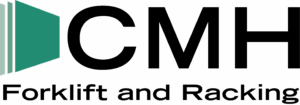Coastal Material Handling – Pallet Racks | Forklifts | Shelving | Material Handling Equip…
Proper Forklift Maintenance Keeps Your Business Running Smoothly
At Coastal Material Handling, we understand that your forklift is more than just a piece of equipment—it’s the backbone of your daily operations. Whether you’re handling inventory in a warehouse or moving materials on a construction site, keeping your forklift in peak condition is crucial for safety, productivity, and cost-efficiency.
Here’s our expert guide to proper forklift maintenance to keep your equipment running smoothly and your team safe.
1. Conduct Daily Pre-Operation Inspections
Before each shift, operators should perform a basic inspection. This not only meets OSHA requirements but can also catch minor issues before they become costly problems. Key checkpoints include:
Tire condition and pressure
Fluid levels (oil, hydraulic, brake, coolant)
Mast and forks for cracks or damage
Operational safety features (horn, lights, backup alarm)
Battery charge level (for electric forklifts)
Tip: Use a checklist to standardize inspections and ensure nothing gets overlooked.
2. Schedule Regular Professional Servicing
Just like your car needs routine maintenance, forklifts require scheduled service at intervals recommended by the manufacturer—typically every 250 hours of operation.
During a professional service, a certified technician will:
Change the oil and filters
Inspect and adjust brakes
Check and top off hydraulic fluid
Test steering and transmission systems
Look for wear on chains, hoses, and belts
Bonus: Partnering with Coastal Material Handling for your maintenance ensures service is performed by experts who know your equipment inside and out. We offer maintenance specials that make it very easy to keep your forklifts maintained routinely.
3. Maintain Cleanliness
Dust, debris, and spills can quickly wear down key components. A clean forklift operates more efficiently and is easier to inspect. Encourage your team to:
Wipe down the forklift at the end of each shift
Keep the warehouse floor clean to prevent build-up
Protect electric forklifts from water exposure
4. Monitor Usage and Hours
Overuse without adequate rest and maintenance can lead to unexpected breakdowns. Keep a usage log and track engine hours to ensure you’re not exceeding service intervals.
Pro Tip: Most modern forklifts have hour meters. Check them regularly to stay on schedule.
5. Train Your Operators
Proper operation extends the life of your forklift. Invest in certified training to ensure operators:
Avoid overloading
Operate at safe speeds
Use correct lifting techniques
Know how to spot and report issues
At Coastal Material Handling, we offer OSHA-compliant forklift training programs tailored to your team’s needs.
6. Store Forklifts Properly
When not in use, store forklifts indoors or under cover. Avoid parking them on inclines, and ensure the parking brake is engaged. For electric models, keep batteries charged and water levels maintained.
7. Keep a Maintenance Log
Track every inspection, repair, and service visit. Not only does this help with planning, but it also adds value if you ever choose to sell or trade in your equipment.
Trust Coastal Material Handling for Your Forklift Needs
Forklift maintenance isn’t just about compliance—it’s about maximizing uptime, reducing costs, and keeping your team safe. Whether you need routine service, emergency repairs, or equipment rentals, Coastal Material Handling is your trusted partner.
Need help setting up a maintenance plan?
Contact us today and let our experienced team keep your forklifts running like new.
Jon Myrick, Service Manager
📞 757-465-8338
🌐 www.coastalmhe.com
📧 jmyrick@coastalmhe.com
